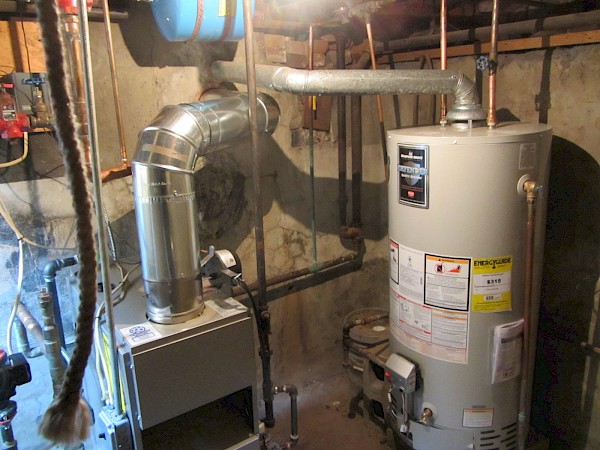Going tankless in North Delta


People often ask me why they have to attend a home inspection with me, instead of waiting for the report. I’ve been an inspector for over 27 years now, all over the Lower Mainland — from all over Vancouver, Burnaby and New Westminster; as far east as Hope, and all over Surrey and North Delta, my home towns. I’ve never had a client tell me after accompanying me on the inspection say, “this was a waste of my time”. More often than not, they’ve learned many things they were unprepared for, and are relieved that they have answers and understand the importance of ongoing maintenance and proper repair.
Here’s a typical case study of a home inspection that I’ve completed with a client on site. We’re going to cover many aspects of the home, using examples from many inspections I’ve done over the years, including solutions.
The house we’ll be inspecting (using as a case study) over the next week or so, is a three bedroom two bathroom home built in 1969, in North Delta. It’s springtime, and a clear day, when the clients, a young couple, Bruce and Heather, are buying their first single family home and they arrive. They’ve owned a townhouse in Surrey, and now have a family. Bruce is an accountant, and Heather is a stay at home mom. Five years ago, I inspected their first home — a townhouse with them, and they were pleased with that inspection. Now, we’re going to look at their new purchase.
__________________________
We’re now in the interior of the North Delta home. What are we looking for?
We are looking at the plumbing.
Down in the North Delta basement home is a true original. We’re looking at the hot water tank. Nearly all modern water heaters, electric, oil fired, or gas fired, include data tags and stickers that indicate the year and month of manufacture of the water heater. We discover that this heater was manufactured in 1974. I’m writing in the report “nearing the end of its serviceable life”. It’s rare to see a water heater with such an advanced age. “Bruce and Heather, it looks like we have to consider that replacing this hot water heater in the near future would a good thing to budget for.
Storage tank water heaters are the most common type used in Canada. Depending on the age of the water heater, the efficiency of a standard gas-fired storage tank will range between an energy factor (EF) rating of 0.50 to 0.62. These systems heat and store water in a tank so that hot water is available to the home at any time. A storage tank water heater can supply simultaneous tasks such as bathing and running a dishwasher. ENERGY STAR® tankless water heaters are much more efficient than a standard storage tank, achieving EF ratings between 0.82 and 0.99. Tankless water heaters don’t store hot water and depending on your overall hot water use, they may not have the capacity to supply an entire home with hot water. If you use 41 gallons or less, you’ll probably find a tankless is the way to go. You can save up to $100 a year in energy savings.
A few things to think about though. Tankless water heaters do not deliver water faster. It isn’t ‘instant hot’. It takes some time, and some brands will only fire up when they sense flow. Expect an additional few seconds of wait time before hot water reaches a faucet. Not all tankless water heaters are the same. Look for a good plumbing/HVAC company with a good reputation that stands behind their work.
Check with your own municipality for permit requirements. Remember, you are replacing a 40,000 BTU tank with something that uses up to 199,999 BTU’s of gas. It produces exhaust and carbon monoxide and vents completely different. For your safety and health it is best to follow the local authority’s requirements for permit and inspection.
Solutions: to sum things up, if cost, not convenience is the main driving factor in your choice of water heaters, measure your installation costs against potential long-term energy savings of the tankless water heater. Those savings will depend on your hot water usage and the energy source you are using to heat your water.
Bottom Line? A water heater can impact your life more than you realize. You probably know what it’s like to be in the middle of taking a shower, hair covered with shampoo, and all of the sudden the shower water turns freezing cold. If you have a large family or several roommates living under one roof, some of you may even have to schedule showers around the hot water supply. Your water heater can also affect your utility bills, and maybe even your home storage and decor choices (“I want to use this space in my kitchen, but there’s a giant water heater located there”).
